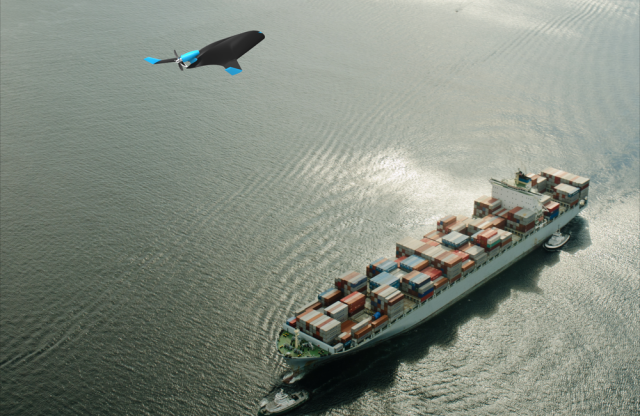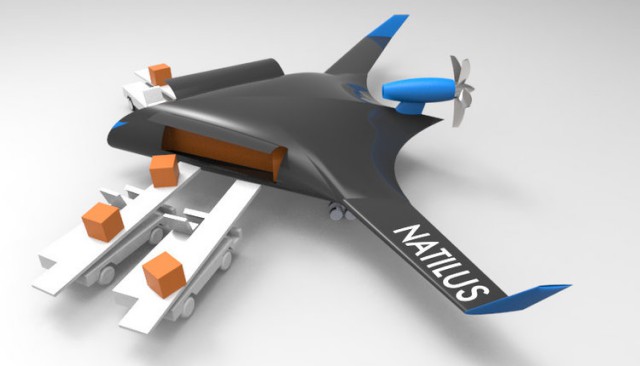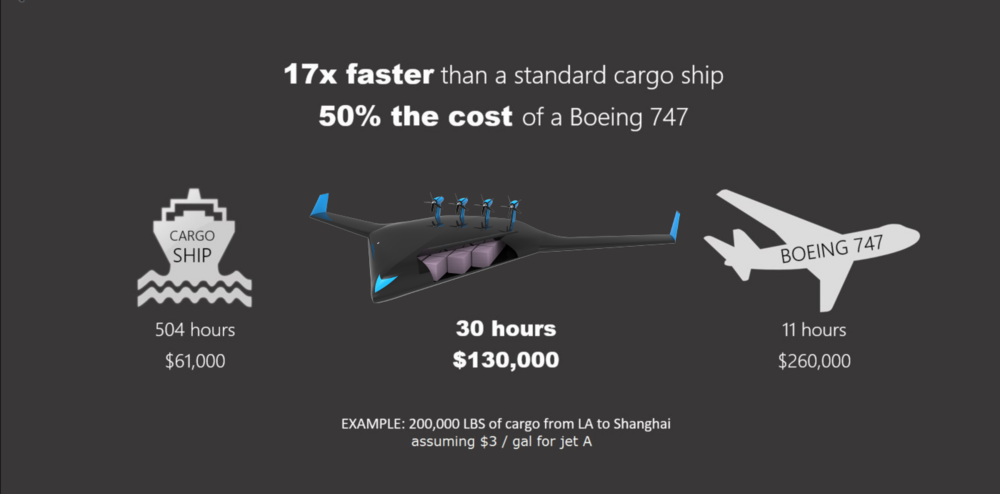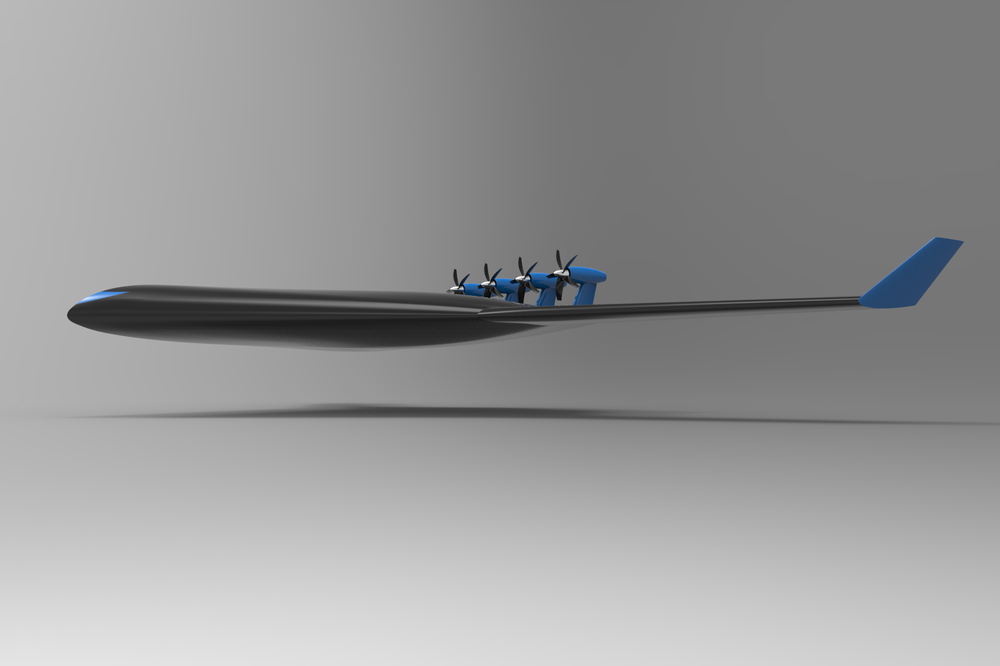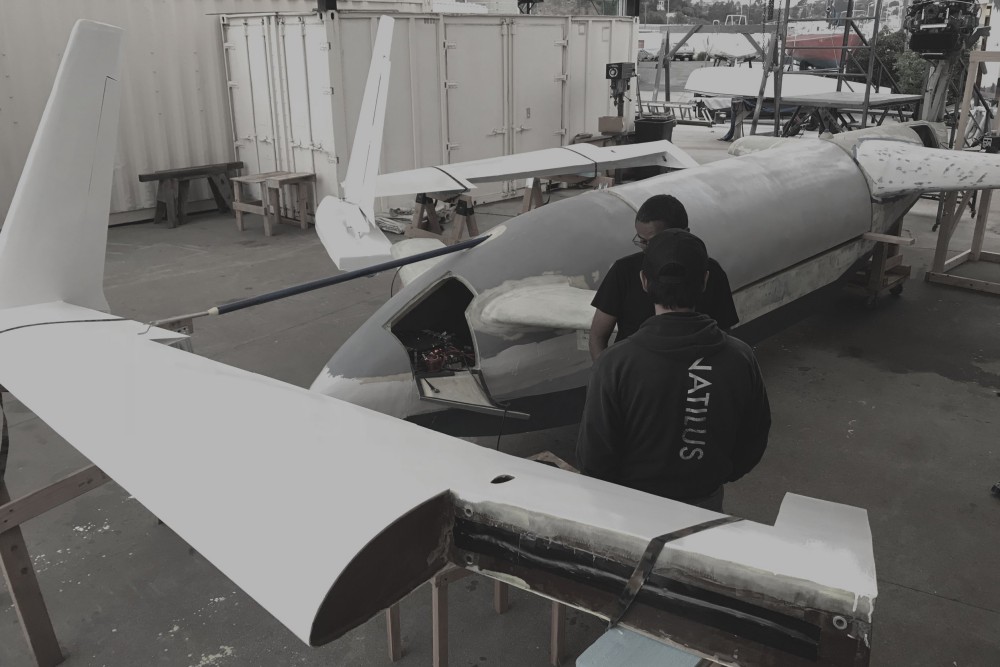, a startup based out of California, is looking to provide a solution that allows it to transport freight multiple times faster than when it is shipped across the ocean, at half the price of regular air freight.
The origin of the Natilus idea is interesting. Aleksey Matyushev, the co-founder of Natilus, was working with his fellow founders on a couple of successful Kickstarter campaigns when he faced a persistent issue with international freight.
“We were doing engineering in the U.S. and manufacturing out of Asia,” he explains, “and we always needed products that had to be shipped faster than what the ships provided. But then, the cost of air freight was way too expensive, with us giving away all our margins on the product we were trying to sell. For two years we were thinking about this problem, and we realized that building a drone could finally solve this issue.”
“Right now, we haven’t built the airplane, but are working on the simulation. We create drag and performance models, and predict the drag at the vehicle before it is built,” adds Matyushev. “We have a lot experience going forward with this, since we come from the aerospace industry and have been at it for a decade now.”
Apart from the engineering side of things, Natilus also needs to work on arriving at the operating costs. “We put in lease agreements called the Aircraft Crew Maintenance and Insurance (ACMI). And then we wrap all the processes together and weigh that in [to determine] how much cargo can be carried, to finally arrive at the operational cost numbers,” notes Matyushev.
When questioned about the growth of the air freight market, Matyushev is optimistic about the prospects.
“I see e-commerce to be the main sector that is driving growth. Everybody knows that Amazon and Alibaba are going to continue growing for the next ten years,” he says. “Along with that is the lack of pilots due to the creation of different sized vehicles. That pushes the market in the direction of a drone.”
Another issue that bogs the industry down is the weight-centric approach of aircraft, against a more volume centric approach that the e-commerce sector is looking forward to. “We need a lot more volume in an aircraft than ever before, whereas vehicles right now are passenger vehicles adapted for freight, and designed with a weight-centric approach,” adds Matyushev.
Over the next decade, the industry requires solutions that gravitate towards unmanned drones which has cargo volume at the heart of its design.
Since Natilus works in the perimeter of aviation, there are strict regulatory measures that govern drone manufacturing.
“The drones we design need to be certified by a regulatory body named Remotely Piloted Aircraft Systems. The levels of safety that we go through would be the same as a Boeing or an Airbus for same-sized vehicles,” explains Matyushev.
Though the technology powering the drones would be capable of full-fledged autonomy, the regulatory environment prohibits such an exercise. So Natilus plans to fly its vehicles in the same way the military flies its Predator drones and Global Hawks.
“It is more of a sensory in and react type situation rather than involving artificial intelligence or full-fledged autonomy. But when the regulatory environment changes, we must be the first in the market to bring that level of autonomy,” says Matyushev. “But at the moment, the process is very manual, and we fly our vehicles with a remote pilot.”
Before Natilus started to raise funding, it spent about a year talking to potential customers, trying to validate its business model. The assumption was that freight forwarders and large-scale integrators would love the idea of a vehicle that is a bit slower than regular air freight, but comes at half the price.
“Our research yielded an overwhelming yes from our potential clients. That led us to start building our model,” adds Matyushev.
Natilus is an aircraft manufacturer and does not operate its own vehicles, but is only involved in production and selling of drones.
“Our obvious choices for clients would be companies like DHL, FedEx, and Atlas Air. There are second-tier operators like Astral Aviation that have smaller aircraft fleets, but are scaling up rapidly.”
Despite having an attractive and technically sound product, Matyushev feels that sales meetings are a whole different ballgame. Since the company is involved in selling contracts worth in the millions, the sales cycles are expectedly quite long.
Natilus has recently raised its second round of seed funding, and the money would go for aggressively scaling its operations and building its 30-foot prototype. The test flight is scheduled to happen before the end of the year and a commercial market launch is expected by 2020.
Source: FreightWaves

